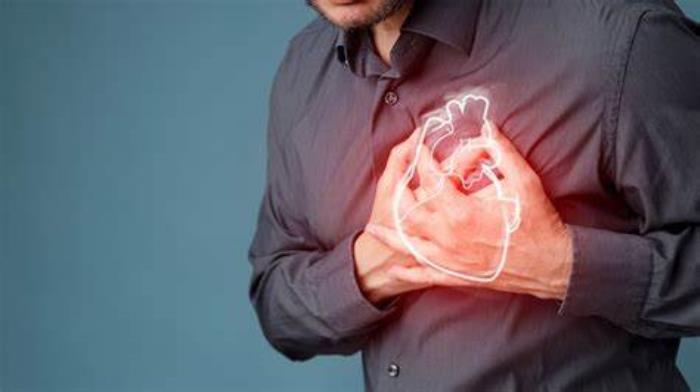Monitoring heart health after mitral valve replacement (MVR) surgery is crucial to ensure proper healing and optimal valve function. Regular follow-ups and attention to heart health help identify potential complications early, aiding in long-term recovery and quality of life.
Understanding the Recovery Process Post-MVR Surgery
The recovery process following MVR surgery involves gradual healing of the heart and surrounding tissues. Patients may experience temporary fatigue and mild discomfort as they adapt to changes in blood flow and valve function. Adhering to prescribed medications, activity restrictions, and dietary guidelines is essential during this phase.
Regular Follow-Up Appointments with Your Cardiologist
Frequent follow-up visits with a cardiologist are vital for tracking progress after MVR surgery. These appointments allow the healthcare team to evaluate the functionality of the new valve, adjust medications, and address any concerns related to recovery or symptoms.

Key Tests to Monitor Heart Function After Mitral Valve Replacement
Diagnostic tests such as echocardiograms, electrocardiograms (ECG), and chest X-rays are commonly performed during follow-ups. These tests help assess heart function, detect irregularities, and confirm that the replacement valve is operating correctly without leaks or blockages.
Recognizing Symptoms That May Indicate Complications
Patients should remain vigilant for symptoms like chest pain, shortness of breath, irregular heartbeat, or swelling in the legs, as these could indicate complications such as valve dysfunction, blood clots, or heart failure. Prompt reporting of these symptoms is essential for timely intervention.
Managing Blood Pressure and Heart Rate Post-Surgery
Maintaining stable blood pressure and heart rate is crucial for protecting the new valve and preventing strain on the heart. Medications such as beta-blockers or ACE inhibitors may be prescribed to regulate these parameters, and patients are encouraged to monitor their vitals at home regularly.
The Role of Echocardiography in Assessing Valve Function
Echocardiography is vital for evaluating the performance of the mitral valve after replacement surgery. It provides real-time imaging to assess blood flow, valve alignment, and potential complications such as leaks or regurgitation.
Monitoring for Signs of Infection or Endocarditis
Regular checkups are essential to detect signs of infection, such as fever, fatigue, or unusual symptoms, which could indicate endocarditis. Prompt diagnosis and treatment are critical to preventing severe complications.
Understanding the Importance of Anticoagulation Therapy
For patients with mechanical valves, anticoagulation therapy reduces the risk of blood clots. Adherence to prescribed medication and routine monitoring ensures effective management and lowers the risk of stroke or other complications.
How to Track Your INR Levels If on Blood Thinners
Patients on anticoagulants should regularly monitor their INR (International Normalized Ratio) levels to maintain them within the therapeutic range. Home testing kits or frequent lab visits can help ensure accurate tracking.
Monitoring for Arrhythmias or Irregular Heartbeats
Arrhythmias can occur after mitral valve replacement. Regular ECGs and symptom awareness, such as noticing palpitations or dizziness, help detect and manage these conditions promptly.

Managing Lifestyle Changes to Support Heart Health
Adopting a heart-healthy lifestyle is critical after surgery. This includes managing stress, eating a nutritious diet, maintaining a healthy weight, and avoiding tobacco and excessive alcohol consumption.
The Importance of a Heart-Healthy Diet After Surgery
A diet rich in fruits, vegetables, lean proteins, whole grains, and low in saturated fats and sodium supports heart recovery and reduces the risk of further complications.
Incorporating Safe Physical Activity Into Your Routine
Light to moderate physical activity, such as walking or cycling, improves cardiovascular health and enhances recovery. Consult your doctor to develop a safe and tailored exercise plan.
How Stress Management Affects Heart Recovery
Chronic stress can strain the heart and impede recovery. Practices like meditation, yoga, or counseling can help manage stress and improve overall heart health.
Signs That Require Immediate Medical Attention
Seek immediate medical care if you experience severe chest pain, sudden shortness of breath, swelling, or symptoms of a stroke, as these may indicate serious complications.
Advances in Wearable Technology for Heart Monitoring
Wearable devices, such as smartwatches and heart rate monitors, provide real-time data on heart rate, rhythm, and physical activity. These tools aid in tracking recovery and detecting early warning signs of complications.
The Role of Support Groups in Long-Term Recovery
Joining support groups connects you with individuals who have undergone similar experiences, offering emotional support, shared advice, and motivation for maintaining a healthy lifestyle.
Understanding Long-Term Outcomes and Prognosis After MVR
Mitral valve replacement improves symptoms and quality of life for most patients. Long-term outcomes depend on regular follow-up, adherence to medical advice, and proactive management of lifestyle and medications.
Factors That Influence the Success Rate of Mitral Valve Replacement Surgery
Explore key factors that affect the success rate of mitral valve replacement surgery, including patient health, surgical technique, and post-operative care.
The Role of Physical Therapy in Post-Mitral Valve Replacement Recovery
Understand the importance of physical therapy after mitral valve replacement surgery and how it aids in improving heart function and overall recovery.
Conclusion: Proactive Heart Monitoring for a Healthy Future
Effective heart monitoring and lifestyle adjustments after mitral valve replacement are essential for long-term health. Regular checkups, appropriate medications, and support systems can ensure a smooth recovery and enhanced quality of life.
Best Mitral Valve Replacement Surgery in India
The Best Mitral Valve Replacement Surgery in India is designed to restore heart function in patients with mitral valve disease, providing effective solutions to improve quality of life and heart health.
Best Mitral Valve Replacement Surgeons in India
The Best Mitral Valve Replacement Surgeons in India are skilled in valve replacement techniques, providing personalized care to achieve successful outcomes for patients with mitral valve conditions.
FAQ
What tests are essential to monitor heart health after mitral valve replacement?
Echocardiograms, ECGs, blood tests, and INR monitoring are critical for tracking heart function and detecting complications.
How often should I visit my cardiologist after the surgery?
Initial follow-ups may be frequent (e.g., monthly), but annual visits are typical once recovery stabilizes, depending on your condition.
What are the warning signs of complications after mitral valve replacement?
Symptoms like severe chest pain, fever, swelling, or unusual fatigue warrant immediate medical attention.
How can I manage anticoagulation therapy effectively?
Regular INR testing, medication adherence, and avoiding interactions with certain foods or drugs help manage anticoagulation safely.
Can wearable devices help monitor heart health after MVR surgery?
Yes, wearable technology can track heart rate, detect irregular rhythms, and monitor physical activity, aiding in early detection of issues.
Explore the Best Cardiologists and Cardiac Hospitals in India
When it comes to heart health, choosing the right specialist and hospital is crucial. We�ve compiled a list of top cardiologists and cardiac hospitals across India to help you find the best care available.
Top Cardiologists and Cardiac Surgeons in Major Cities
Discover the leading heart specialists in India�s major cities:
Conclusion
Your heart deserves the best care. Explore the links above to learn more about the top cardiologists and cardiac hospitals in India.
Related Resources
At ArogyaJivan, we strive to provide you with the most accurate and up-to-date information to help you make informed decisions about your healthcare. Whether you are searching for the Best Doctors in India or the Top 5 Doctors in India, our resources are tailored to guide you through your medical journey. Additionally, our comprehensive guides on the Best Hospitals in India and the Top 5 Hospitals in India will assist you in choosing the right healthcare facility for your needs. Explore these resources to ensure you receive the best possible care.